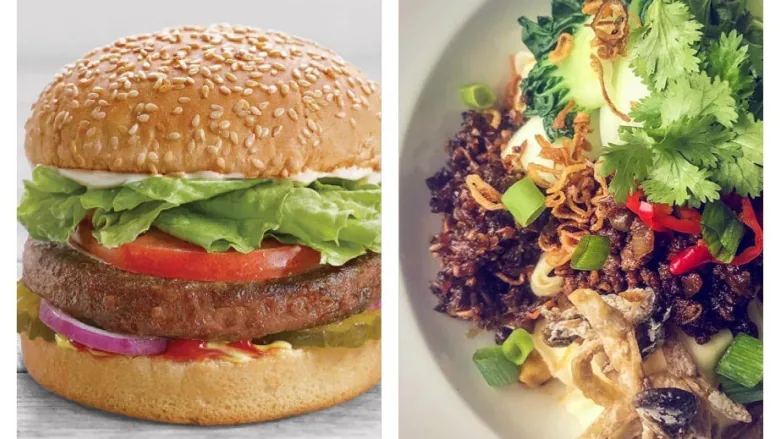In spite of indications that the meatless burger industry is encountering a slowdown, writers, chefs, and industry experts express optimism about consumers persisting in their exploration of alternative plant-based choices to supplant meat in their dinner arrangements.
Recent reports revealed that Beyond Meat, a pioneer in plant-based meat substitutes, experienced a 30 percent decline in revenue during the second quarter compared to the previous year.
While this news may dishearten some, it aligns with the expectations of Alicia Kennedy, an American food writer and cook. She contends that the surge in “tech burgers” merely distracts from the more crucial objective of encouraging people to embrace captivating and delectable vegetables, legumes, and whole grains as replacements for meat in their meals.
Half a decade ago, a study conducted by Dalhousie University approximated that around 6.4 million Canadians have curtailed their meat consumption. Interestingly, the study also revealed that among respondents identifying as vegans, a notable 63 percent were below the age of 38.
For quite some time, the United Nations has emphasized the importance of reducing meat consumption due to the substantial contribution of agriculture and land use to food-related greenhouse gas emissions. The UN underscores that meat production frequently demands extensive grasslands, which in turn can lead to deforestation and the release of stored carbon dioxide from forests.
Over the course of several years, meatless burgers were regarded as a significant component in the endeavor to persuade individuals to transition away from meat consumption, according to Kennedy, the author of the recently published book titled “No Meat Required.” During an interview with The Sunday Magazine, Kennedy remarked that these burgers were initially championed as the definitive solution, purportedly capable of addressing the climate crisis.
Kennedy, who personally abandoned meat in 2011, initially adopting veganism and subsequently shifting to a vegetarian diet, elaborated, “It was celebrated as the ultimate solution… a means to combat the climate crisis. The notion was that if we could simply find a suitable hamburger alternative, people would willingly make the switch.”
Considerable excitement surrounded the entrance of Beyond Meat and its primary rival, Impossible Meat, into supermarkets, fast-food establishments, and even upscale restaurants.
The perspective held by the Good Food Institute (GFI), a think-tank based in Washington, differs from this viewpoint. As stated on its website, the organization is actively engaged in “advancing alternative protein innovation” with the aim of “revolutionizing meat production” through plant-based meat and cultivated cell-based meat.
Furthermore, the institute remains unfazed by the possibility of a downturn.


